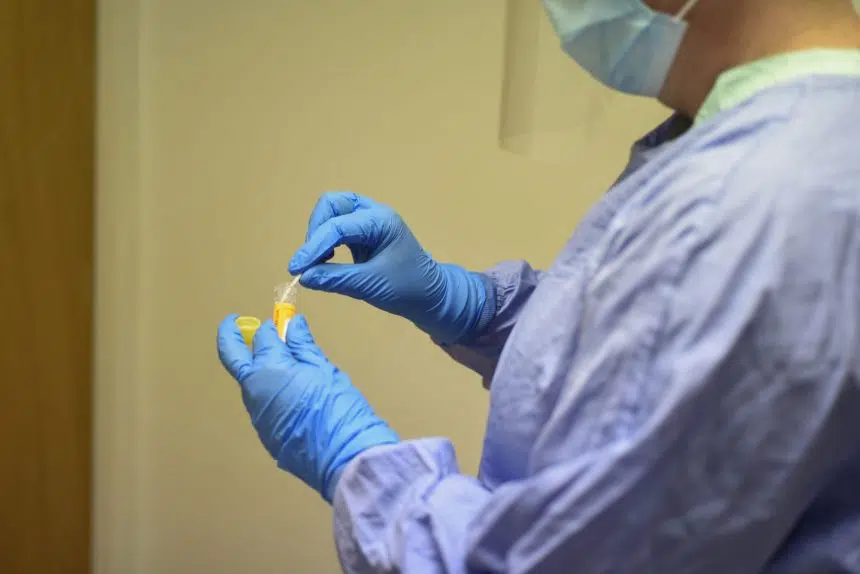A physician executive with the Saskatchewan Health Authority doesn’t dispute that some seeking a COVID-19 test have to wait.
But Dr. Paul Babyn tells Gormley that stories about people waiting a week to get tested are outliers.
“I think what you’re hearing are those that are the more extreme examples. That doesn’t mean this is our average,” Babyn said. “So our average is much less than a week, but you are hearing some examples where it can be problematic for the individuals and we’re working to try and ensure that we have the appropriate response for everyone.”
Babyn said earlier in the pandemic, some of the SHA’s testing sites were only operating two or three times per week because the demand wasn’t there.
But the province is now in its fourth phase of the government’s reopening plan. Universal testing has been introduced.
Babyn said testers are trying to meet that higher demand.
“We’re increasing the availability of the testing and opening the hours to six days a week … We are building that up but it does take a little bit of time for us to respond to what is a very dynamic and rapidly changing situation,” he said.
To date, more than 80,000 tests have been conducted.
Babyn said the current rate of testing, between 1,200 and 1,300 per day, is sustainable.
“We are working to expand the number of tests that we will be able to do, both in the lab and at the testing sites. And we’re hoping to be able to do close to 4,000 (per day) by the fall,” he said.
There is also the triage of those seeking a test.
Some patients may need to be sent to the emergency room, Babyn said, while those who are asymptomatic need to be checked to ensure they are not simply showing minor symptoms.
Those who are exhibiting symptoms or live in communal settings like long-term care homes get first priority. People who are not symptomatic might have to wait.
“Those that have some vulnerability, we try and prioritize those first and ensure that they have the access that they need,” Babyn said.
But Saskatchewan NDP Leader Ryan Meili said the government needs to make some real changes to its response to COVID-19.
“We’re hearing from people who are waiting hours on 811, waiting days to get a call back for a testing appointment, more days to get tested and more days yet to actually get results,” Meili said. “This puts people in a terrible position where they’re having to decide between waiting for their results and do the safest thing or they’re forced to go back to work.”
He said proper testing and contract tracing is a key element as the province not only reopens businesses but schools as well.
“There are some drop-in sites in specific communities but when you look around the world, you see drive-thru testing, drop-in testing. There’s all kinds of barriers put in place here; they’re actually slowing down the testing,” Meili said.
Meili was critical about the decision to reduce staffing at some sites.
“This is a government that didn’t plan in advance the needs of the health-care system, (to) make sure that the capacity is there, so they had to scramble when the virus first arrived then they pulled resources way back and now they’re having to scramble again,” Meili said.
On Wednesday, the government responded to claims people were waiting up to a week for a test, indicating it was unacceptable and it would do better.











